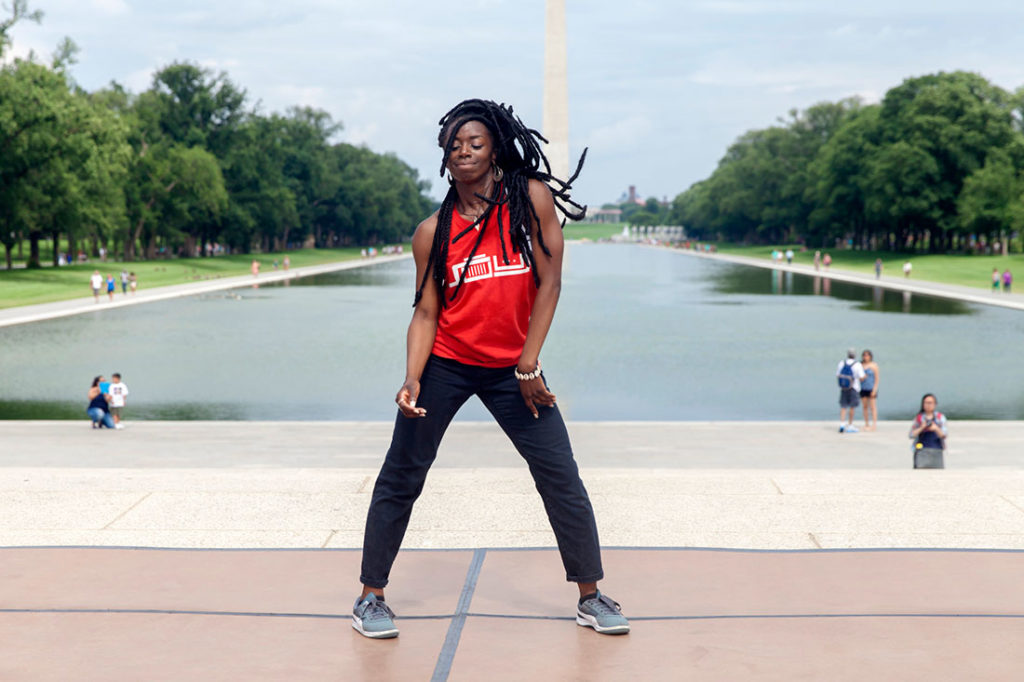A few years ago, I saw a weakness in my outdoor skills that needed to be rectified: I had not camped alone. I knew I would eventually have to do that for a story, and I needed to be comfortable with it or I’d risk losing and/or blowing the assignment.
The first time I camped alone was in Maine. It was four years ago, and yet I recall not only the book I was reading (Robinson Crusoe) but where I was in it, the howling wind lashing at my tent, even the color of the leaves when I woke up (vibrant golden yellow). As I climbed out, I felt alive, vibrant, ready to take on the world.
I thought I was simply learning a new skill. But there was so much more going on than that. “Research into brain health and longevity suggests that regular experience of novelty is essential to a long, happy life,” Brain World magazine writes.
Especially in fitness, fads come and go—we kicked like mad for Tae Bo, set PRs like mad for CrossFit, and now we pedal like mad for Peloton. Next month something else will consume us before we move on again. Lots of people roll their eyes at that, but they shouldn’t. We change up work routines, we rearrange furniture, we go on vacation, all to spark something new and different in us. Why can’t exercise routines be the same?
It can, and should be, and not just because new exercise routines offer a way for us to convince ourselves to get motivated about movement. In fact, there is fascinating brain research that shows that trying something new isn’t just fun and energizing, it makes our lives better in myriad other ways.
When we experience something new and like it, our brain triggers a release of dopamine. Dopamine makes us experience pleasure. And the benefits of doing something novel extend beyond just feeling good. Learning makes our brains better. “Every time you learn a new fact or skill you change your brain,” says Lara Boyd, director of the Brain Behaviour Lab at the University of British Columbia, in a TEDx talk called “After This Your Brain Will Not Be The Same.”
The harder a skill is to learn, the better it is for your brain. “My research has shown that increase in difficulty, increased struggle if you will, during practice actually leads to both more learning and greater structural change in the brain,” Boyd said.
Many of the new skills I’ve learned (or tried to learn) as I’ve become physically active in the last 10 years have to do with facing fear—rock climbing, ice climbing, ziplining, etc. Others involve fear’s first cousin—getting comfortable being uncomfortable—mountain/road biking, kayaking/canoeing, and camping alone.
And if you think camping alone isn’t something a person needs to work on, let me invite you to go way out into the woods, pitch a tent, and tell me how you react when branches crack at midnight and the coyotes howl and it sounds like there’s 100 of them and they’re getting closer and IS THAT A MONSTER BREATHING ON THE SIDE OF MY TENT?!?
The heebie-jeebies are real, or at least they are to me. Facing fear or discomfort in “play”—of heights, of the unknown, of looking like a fool in front of a guide and peers—helps me face fears as a parent, husband, writer and solopreneur.
“Constantly introducing new and different strategies for physical activity and life skills can allow individuals to have more ‘tools’ in their toolbox to handle general life stressors,” says Christine Mac Donald, Ph.D., the research director for The Sports Institute at UW Medicine and a professor of neurological surgery at the University of Washington School of Medicine: “Learning new exercises and skills naturally makes exercise more interesting. Incorporating them in your fitness routine can help in physical activity sustainability. It can be very easy to become less motivated over time when routines become too repetitive. A varied physical activity plan naturally keeps things interesting, and it’s also an opportunity to maybe find an activity you like and didn’t know.”
The benefits of learning new athletic skills are both ethereal and physical. As Diane Ackerman writes, “Play is an activity enjoyed for its own sake. It is the brain’s favorite way of learning and maneuvering.”
However true that is, there is also a biological benefit to it. “When you elevate your heart rate, you increase the flow of oxygenated blood to the brain which in turn can improve brain function,” Mac Donald says. “The more you’re active the more your body benefits overall, but 11 to 20 minutes is long enough to get the heart rate elevated for enough time to positively impact brain function. That’s partially why finding any time for movement during the day is great for everyone.”
Trying something new forces us to live in the moment. Almost nothing is boring the first time you do it. That’s why memories of my trip to Maine remain so vivid.
“We live in a state of constant mental churn and meaningless chatter,” Michael Easter writes in The Comfort Crisis: Embrace Discomfort to Reclaim Your Wild, Healthy, Happy Self. “In newness, we’re forced into presence and focus. This is because we can’t anticipate what to expect and how to respond, breaking the trance that leads to life in fast forward. Newness can even slow down our sense of time.”
I found that to be true in solo camping; that trip to Maine seemed to last forever. Subsequent solo camping outings in Texas, New Mexico, Utah and again to Maine flew by in comparison. Easter hints at a fascinating idea here: If we fill our lives with learning new things, it will feel like we live longer, or at the very least fuller, lives. “This explains why time seemed slower when we were kids,” he writes. “Everything was new then, and we were constantly learning.”
Photo by @vinnikava/Twenty20



